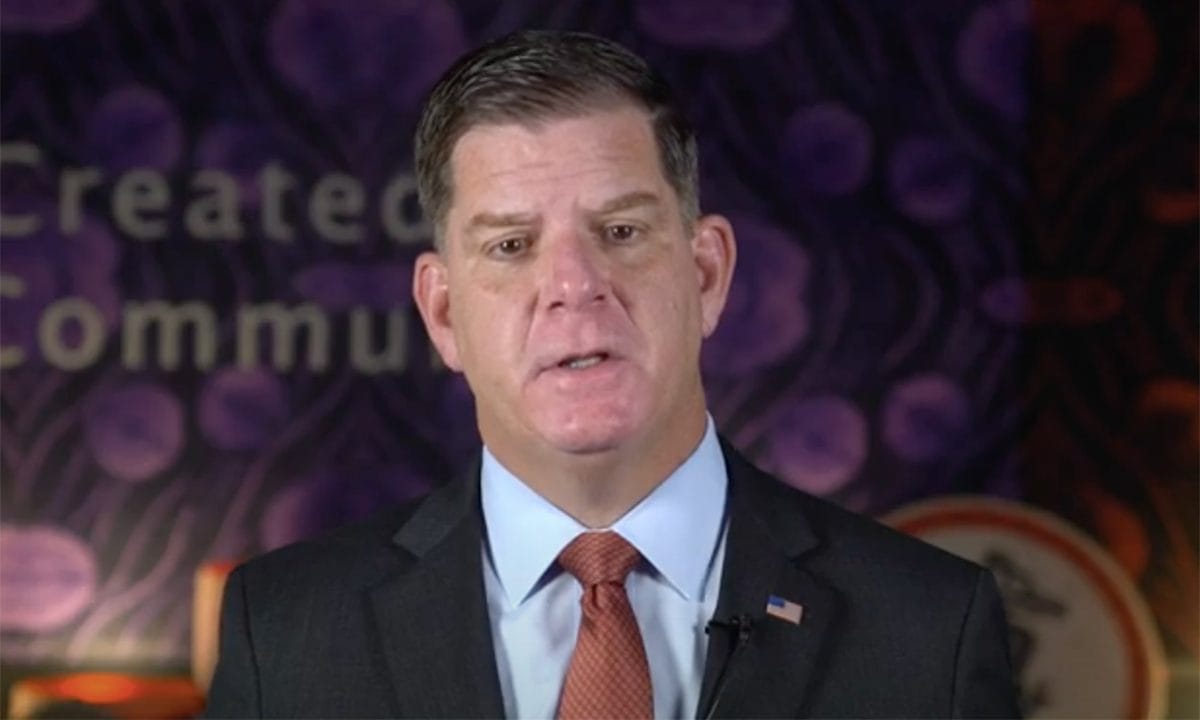When employment law giant Seyfarth announced the arrival of partner Annette A. Idalski to its Labor & Employment department and Wage Hour Class & Collective Actions practice group, they were clearly adding someone who was used to winning high-stakes cases.
Since she began practicing employment law in 1995, Idalski has gained hundreds of successful outcomes defending employers against lawsuits brought by employees involving independent contractor status, wage and hour compliance, discrimination, and whistleblower complaints. Idalski was named among the Top 50 Women Lawyers in Georgia and was quoted in a profile as saying, “I strive for excellence and do not tolerate mediocrity. My clients hire us to win and we do everything in our power to make that happen.”
Following her move in May to Seyfarth, Idalski spoke via email with Workforce Editorial Director Rick Bell for this Q&A.
Workforce: What should employers do to avoid wage and hour violations?
Annette A. Idalski: Employers should draft and disseminate a policy clearly stating how nonexempt employees must record their time including time off for meal periods or breaks in service. It is also advisable to describe with particularity in the employee’s offer letter how the employee will be classified and to explain how the employee’s pay will be calculated including overtime pay and bonuses. Employees should sign their offer letter to acknowledge that he or she understands how his or her pay is calculated.
Workforce: The Department of Labor is once again stepping up enforcement, particularly in its wage and hour division. How are you counseling clients to boost their compliance?
Idalski: Employers should be quick to correct any mistakes that they identify as a result of wage compliance audits, or employee complaints. Proactive employers who make an effort to come into compliance before a DOL audit will fare much better with DOL investigators and could avoid penalties such as liquidated damages.
Workforce: Are you a believer that guidance from the Department of Labor is a stronger deterrent of wage and hour violations than enforcement?
Idalski: Yes. In my opinion, the DOL should focus more on teaching and training companies rather than trying to find violations. The majority of employers want to do the right thing. They want to comply with the law and would be receptive to “help” and “guidance” from the DOL. Unfortunately, the DOL has not focused on guidance and has over the years focused on enforcement which has caused many employers to fear the DOL rather than see the department as an ally.
Also read: Worker misclassification leads to $358K penalty for home health care provider
Workforce: Do any of your clients record time and attendance and overtime manually? What are the compliance challenges facing employers using a manual, paper-based system versus an automated system?
Idalski: Yes, some clients record time and attendance and overtime manually. The compliance challenges facing employers who prefer a manual, paper-based system rather than an automated electronic system is most often inadvertent loss of the paper documents and less accurate reporting of hours worked, which can result in violations of the FLSA. For example, if an employee is required to keep track of his or her paper timesheet, the individual may lose it and then attempt to recreate the timesheet which, of course, may not be accurate. If litigation later ensues, the employer is left with missing timesheets and incomplete records. Further, employees who are manually recording their time may forget to do so on a daily basis and prepare all of their timesheets weekly or when the employer requires him or her to turn them in. Therefore, employers who use a paper-based system must have strict rules for compliance which include preparation and submission of all hours worked, start and end times, and breaks on a daily basis. Employees should also be required to sign their timesheets attesting to their accuracy.
Workforce: Is it generally an oversight when employees are misclassified?
Idalski: Yes. The majority of the time, misclassification occurs because the employer is well intentioned but simply made a mistake. For example, the employer may not know all of the tasks or the frequency of the tasks that an employee performs and may make classification decisions based on job titles and job descriptions rather than actually interviewing employees regarding their job tasks and the time it takes them to complete those tasks. Very rarely do employers intentionally misclassify employees.
Workforce: Do you look at the Labor Department as an adversary?
Idalski: On rare occasions yes. But not the majority of the time. The Department of Labor has an important role in ensuring that employees are paid fairly. While I have dealt with overzealous DOL investigators from time to time as well as investigators that I did not agree with regarding their application of the facts to the independent contractor (e.g., Gate Guard Services v. Hilda Solis) and exemption tests, most investigators simply want to ensure that employers are following the law, that they understand the law and that employees are legally paid.
Workforce: You’ve had some major victories in defending against wage and hour claims. What case are you proudest of?
Idalski: I am very proud of all our client’s victories. The case that has had the most significant positive impact on the energy industry (and other industries using similar models) is Parrish v. Premier Directional Drilling. The Fifth Circuit recognized that directional drillers were independent contractors and not employees. While this case concerned directional drillers, the court’s analysis can be applied to a myriad of oil field positions, and as such, has preserved the oil and gas industry’s business model. Given the fluctuations in demand for labor in the oil and gas industry, independent contractors are routinely used. If this business model were deemed illegal, it would be very difficult if not impossible for oil field services companies and oil and gas companies to operate successfully. I am very proud to have helped the energy industry in this way.
Also read: Oilfield pipeline inspectors working across 40 states awarded $3.8M in back wages
Workforce: How do you get people to look past, “big bad company cheating employees of their hard-earned pay” and realize that the company was in compliance after all?
Idalski: In the oil and gas industry in particular, workers who are classified as exempt from overtime or as independent contractors earn hundreds of thousands of dollars per year and are highly compensated. Those that are classified as independent contractors write off expenses, pay very little, if any, taxes, and enjoy the freedom to accept or reject projects offered to them. So when these workers file overtime claims against companies, it does not take long for juries or judges to understand that oftentimes it is the worker that is trying to take advantage of the company rather than the company taking advantage of the worker. It is unconscionable that a worker earning over $100,000 annually and who pays very little in taxes is entitled to overtime pay. Clearly, the public policy behind overtime pay was to ensure the lowest paid workers were not being overworked and taken advantage of. The overtime laws were not intended to overcompensate six-figure wage earners. These same facts play out in other industries as well such as cable, construction and drivers offering rides to the public.
Workforce: What is your guiding mantra, or philosophy, when defending an employer against a wage and hour complaint?
Idalski: If my client’s practices are legally compliant with the FLSA and/or state wage laws, I encourage them not to settle but to fight and win. When they do, they rarely are sued again, and in the long run it is the best financial decision. Further, it helps the industry and other companies because positive precedent is established that supports their business model. Companies who are innocent and settle because they worry about defense costs oftentimes double or triple their litigation expenses because they are deemed an easy target by plaintiffs’ lawyers. This is not to say that an innocent company should never settle because sometimes it makes sense depending upon their business. More often than not, settling negatively impacts companies.
Workforce: What compliance trends should employers expect to see under Labor Secretary Marty Walsh?
Idalski: Unfortunately, Marty Walsh and the Biden administration are not proponents of independent contractor status and favor the employer-employee relationship. Highly compensated workers will suffer with this approach as they stand to benefit from the tax advantages and flexibility of their independent contractor status. And we can expect the DOL to be focused more on enforcement and penalties and less on guidance. Liquidated damages will almost certainly be automatic if the DOL finds violations.
Workforce: Besides the independent contractors issue, in your crystal ball, what other employment law trends should employers be aware of over the next four years?
Idalski: Employers should be prepared for COVID-related litigation, especially during the next 12 months. This litigation may well include allegations by employees that the employer did not create a safe working environment by requiring and policing the wearing of masks which resulted in the employee contracting COVID and post-COVID related illnesses. Employers who do require vaccinations or reward employees who are vaccinated over employees who are not vaccinated could face discrimination claims. Finally, given social pressures and issues facing the nation, employers should be prepared for an increase in Title VII race and retaliation claims. To avoid this risk, employers should re-examine diversity training and enforcing positive and accepting working relationships among employees and management.
Book a demo today to see how to build schedules, manage labor costs and ensure labor compliance with Workforce.com’s No. 1 employee scheduling software.







